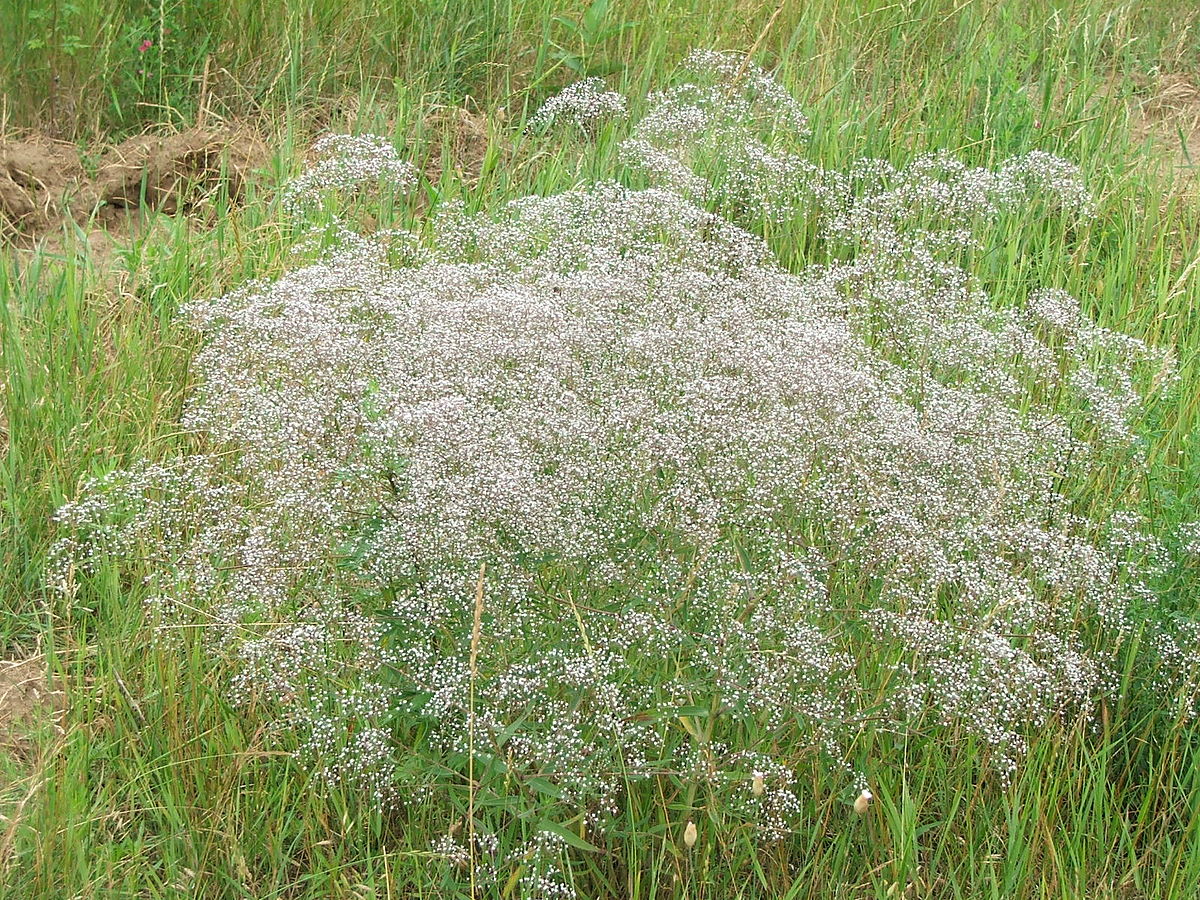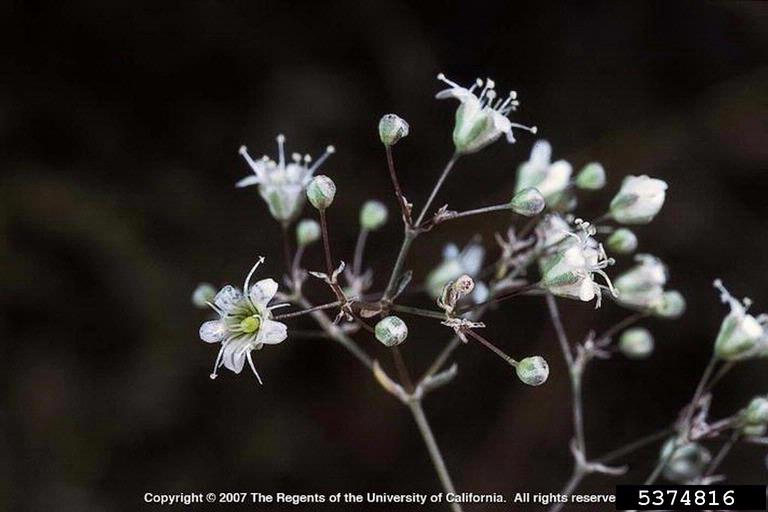Baby's Breath

Baby's Breath
(Gypsophila paniculata)
Priority: - Prevent / EDRR
Tags: Terrestrial
Identification and Reproduction
Identification:
- Baby's breath is a common flower used in floral arrangements.
- It is a flowering plant that grows to a mound of braching stems.
- Stems are slightly swollen at nodes where leaves attach. Leaves are opposite and lance-shaped.
- Its name is derived from its cloud-like appearance when it is flowering. Flowers are white and sometimes light pink. They are made up of five petals and sit on short stalks.
Reproduction:
- Reproduces by seed only.
- Single plants can produce more than 10,000 seeds per year.
- Stalks can break and roll like tumbleweed in the wind, further spreading infestations.
Habitat & Ecology
- Common on dry, sandy grasslands.
- They thrive in well-draining sandy or gravelly soils.
- Grows a deep tap root that can extend to depths of 4 m.
- It is drought tolerant.
Impacts
Social:
- Often used in floral arrangements or as an ornamental plant. Seeds often continue to develop in arrangement and this often facilitates spread.
- Seed spreads allows it to disperse quickly across pastures, roadsides and grasslands.
- Reduces forage opportunities for livestock.
Management
Mechanical/Manual Control:
- Remove infestations before they set their seeds.
- Cut at the root crown, below the ground to prevent resprout.
- Hand-pulling is difficult as tap roots are deep.
- Ensure plant parts including plants received from floral arrangements are bagged and disposed of properly.
Do not plant this species, considering planting alternative non-invasive plants: review the ISCBC's Grow Me Instead guide.
Resources
For more details check out the Invasive Species Compendium datasheet on Gypsophila paniculata (baby's breath).
Download the Alberta Invasive Species Council's factsheet on Baby's Breath here.
Header photo (Matt Lavin).




